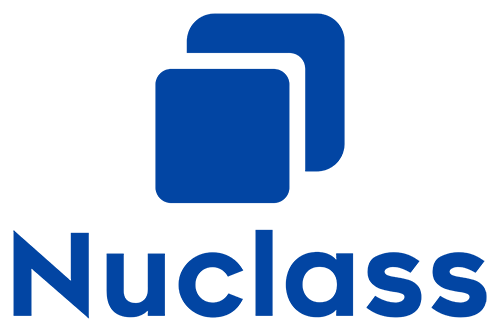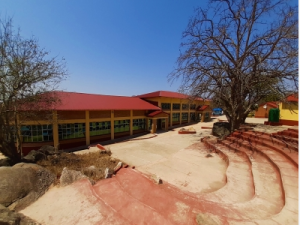The Essentials
Type of Institution: College
Fees per Semester: US$100.00 to US$300.00
Address: 34 Fereday Drive, Eastlea, Harare, Zimbabwe
Phone Number: +263 -04-778922/3
Head: Godfrey Sunguro
Number of students: 300+
Website: https://zim.ac.zw/
Email: info@zim.ac.zw
Table Of Contents
- Overview
- Contact Details
- Address
- Location
- School Fees
- Courses & Programs
- Vacancies and Entry Requirements
- Logo
- Notable Alumni
- Pros and Cons
- Author’s Review
Overview
The Zimbabwe Institute of Management (ZIM) is a professional organization in Zimbabwe dedicated to the development and promotion of management excellence. Founded in 1957, ZIM aims to enhance the skills, knowledge, and capabilities of managers and leaders across various sectors of the economy.
Vision and Mission
Vision: To be the leading institute in the development of management and leadership excellence in Zimbabwe and beyond.
Mission: To promote and develop sound management practices and professional excellence among individuals and organizations through education, training, and certification.
Training and Development
ZIM offers a wide range of training programs, workshops, and seminars aimed at improving management skills. These include leadership, strategic planning, human resources management, project management, and other essential areas.
Professional Membership
ZIM provides professional membership to individuals and organizations. Membership benefits include access to a network of professionals, continuous professional development opportunities, and the recognition of professional status within the industry.
Certification and Accreditation
The institute offers certification programs that are recognized both locally and internationally. These certifications can enhance the career prospects of individuals in management roles.
Consultancy Services
ZIM provides consultancy services to organizations, helping them improve their management practices, organizational performance, and overall effectiveness.
Events and Conferences
The institute regularly organizes events, conferences, and forums where industry leaders and professionals can discuss emerging trends, challenges, and opportunities in management.
Publications and Resources
ZIM publishes various resources, including journals, newsletters, and research reports, which provide valuable insights into management practices and trends.
Zimbabwe Institute of Management Contact Details
You can contact Zimbabwe Institute of Management via their landline, email or you can visit their website for further contact details.
Phone Number: +263 -04-778922/3
Website: https://zim.ac.zw/
Email: info@zim.ac.zw
Zimbabwe Institute of Management Address
34 Fereday Drive, Eastlea, Harare, Zimbabwe
Zimbabwe Institute of Management Location
Zimbabwe Institute of Management is situated in the capital of Zimbabwe, Harare on a surburb called Eastlea on Fereday Drive.
Zimbabwe Institute of Management Fees
Zimbabwe Institute of Management fees is currently standing at US$100.00 to US$300.00 per term depending on the program you are studying. Please contact the institution or visit them to get the latest fees structure as it can change at any term or semester.
Zimbabwe Institute of Management Courses & Programs
The Zimbabwe Institute of Management (ZIM) offers a variety of courses and programs designed to enhance management and leadership skills across different industries.
Diploma Programs
Diploma in General Management: Focuses on essential management skills including leadership, communication, and decision-making.
Diploma in Supervisory Management: Covers the core principles of supervision, including team management and operational effectiveness.
Diploma in Human Resources Management: Focuses on HR practices such as recruitment, performance management, and employee relations.
Diploma in Marketing Management: Teaches marketing strategies, customer relationship management, and market analysis.
Diploma in Business Leadership: Develops leadership capabilities with a focus on business strategy and innovation.
Certificate Programs
Certificate in Business Management: Introduces basic business management principles and practices.
Certificate in Project Management: Focuses on project planning, execution, and evaluation.
Certificate in Office Administration: Provides skills for efficient office management and administration.
Certificate in Customer Service Management: Focuses on delivering excellent customer service and managing customer relationships.
Executive Development Programs
Leadership Development Program: Aimed at enhancing leadership qualities and decision-making skills at an executive level.
Executive Development Program in Strategy and Innovation: Covers strategic planning, innovation, and business growth strategies.
Short Courses and Workshops
Change Management: Provides skills for managing organizational change and transition effectively.
Financial Management for Non-Financial Managers: Teaches non-financial managers the basics of financial decision-making.
Time Management and Personal Productivity: Focuses on improving productivity through effective time management.
Emotional Intelligence in Leadership: Explores the role of emotional intelligence in effective leadership.
Risk Management: Covers how to identify, assess, and manage risks in business operations.
Zimbabwe Institute of Management Vacancies and Entry Requirements
Vacancies
Availability can vary based on demand, so it’s advisable to check directly with ZIM or their official website for the most current information.
Entry Requirements
Diploma Programs
Minimum Requirements:
*At least 5 O-Level passes including English Language.
*Relevant work experience in a managerial or supervisory role may be required, depending on the program.
Preferred Requirements:
*A-Level passes or equivalent qualifications.
*Previous experience in management or leadership positions can be an advantage.
Certificate Programs
Minimum Requirements:
*At least 5 O-Level passes.
*Some programs may accept individuals with fewer O-Level passes if they have significant work experience.
Preferred Requirements:
*Work experience in a related field.
*Basic understanding of business and management principles.
Executive Development Programs
Minimum Requirements:
*Relevant diploma or degree in management or a related field.
*Several years of experience in a managerial or executive role.
Preferred Requirements:
*Significant leadership experience.
*Prior completion of related management training or certification programs.
Short Courses and Workshops
Minimum Requirements:
Open to individuals with varying levels of education and experience, depending on the course.
Preferred Requirements:
Some courses may require a basic understanding of management principles or prior experience in a related role.
How to Apply
Application Process: Prospective students typically apply directly through the Zimbabwe Institute of Management. Applications may involve submitting academic qualifications, a CV, and other relevant documents.
If you’re interested in specific courses or want more detailed information on vacancies or entry requirements, it’s best to contact ZIM directly or visit their official website.
Zimbabwe Institute of Management Logo
Below is the logo of Zimbabwe Institute of Management with excellent quality and it is available to download in PNG (transparent file) JPEG and PDF.
Zimbabwe Institute of Management Pros and Cons
Pros
Specialized Management Training: Provides focused programs in management, leadership, and business skills tailored to various levels of experience.
Industry-Relevant Curriculum: Courses are often designed to meet the needs of the business world, incorporating current trends and practices.
Experienced Faculty: Access to knowledgeable instructors with practical experience in management and business.
Networking Opportunities: Offers opportunities to connect with professionals, industry leaders, and peers, which can be valuable for career growth.
Flexible Learning Options: May offer part-time, online, or modular courses that can accommodate working professionals.
Career Advancement: Qualifications from ZIM can enhance career prospects and open up advancement opportunities in management and leadership roles.
Cons
Cost: Tuition and other expenses may be high, which could be a barrier for some prospective students.
Limited Program Variety: As a specialized institution, it may offer fewer programs compared to larger universities or colleges.
Market Competition: The value of qualifications from ZIM might vary based on the market demand and competition in the field of management.
Resource Limitations: As a smaller institution, it might have fewer resources and facilities compared to larger educational institutions.
Recognition: While ZIM is respected, some industries or employers may place more emphasis on qualifications from larger or more internationally recognized institutions.
Accessibility: Depending on its location, it may be less accessible for students from other regions or countries.
Author's Review
Zimbabwe Institute of Management offers a specialized and focused approach to management education, catering to those seeking to enhance their leadership and business skills.
Its industry-relevant curriculum, experienced faculty, and networking opportunities are significant advantages, providing students with the tools and connections needed to advance in their management careers.
However, potential students should weigh the costs, the limited variety of programs, and the institution’s recognition within the broader job market.
While ZIM’s qualifications are valuable, they might not always carry the same weight as those from larger or more internationally renowned institutions. Additionally, accessibility might be an issue for some prospective students.
Overall, the Zimbabwe Institute of Management is a strong choice for individuals dedicated to pursuing a career in management who value a specialized, practical education. Prospective students should carefully consider how ZIM’s offerings align with their career goals and personal circumstances to make an informed decision about their educational path.




